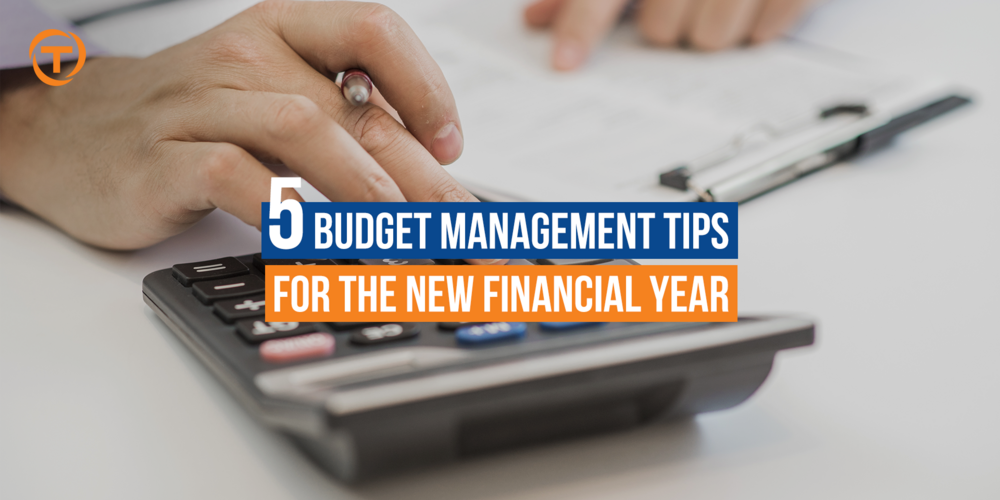As the end of the financial year approaches and tax time looms, you may be looking for ways to manage your finances and budget effectively. Don’t panic. We’ve got your back.
A proper budget management plan can help you nail financial stability and success, even when times are tough - and you don’t have to be an accounting expert to create one.
These practical tips can help you navigate the new financial year - and raise your budgeting game.
1 Go for those financial goals
Now is the perfect time to take stock and plan for the future. By setting your short- and long-term financial goals now, you can use them to help guide future budgeting decisions.
Map out what you want to achieve in the next 12 months. Maybe you want to just stay afloat in changing times, perhaps pay off some debt? Perhaps you’re after a new car or home? Whatever you’ve set your sights on, ensure it’s realistic and achievable. Then, allocate how much you’re able to put aside a month and place that into a high-interest savings account or scheme that directly supports your goal.
If you’re concerned about juggling the cost of living with meeting your financial goals, the recent 2023 Federal Budget has introduced changes that may help to support you, so talk to your accountant about whether these will positively impact you.
If you need help with energy costs, the Government’s Energy Price Relief Plan is providing up to $500 in electricity bill relief for eligible households from July 2023. If buying your first home is one of your goals, eligibility for the First Home Guarantee Scheme and Regional First Home Guarantee will be expanded to any two eligible borrowers beyond being married or in a couple. Great news if you want to buy with a mate.
2 Become an income and expenses guru
Getting clued up about your incomings and outgoings is one of the most empowering financial moves. When you can bring harmony to your personal balance sheet, you’re in the driving seat of your financial future.
If possible, see if you can break up your budget into buckets based on needs, wants and savings. For example, by spending 50% on needs, 30% on wants and 20% on savings, you can stay on track without feeling constrained. It’s wise to categorise and track your expenses as the year unfolds, so choose a system that works best for you. You may like to create a spreadsheet with categories that reflect your spending patterns, such as housing, transportation, groceries, travel, entertainment and miscellaneous.
Many of the banks offer clever online tools. Or you can try a handy app like Frollo or Finspo which link to your account and credit cards so you can identify your spending habits and monitor your goals.
Whichever method you choose, you can use the data to help you cut back or find more cost-effective alternatives in areas that you are overspending on. If you really need help balancing your incomings and outgoings, consider seeking the advice and services of a professional accountant.
3 Learn to file like a ninja
Hands up if you’re guilty of having a last-minute hunt for all your wayward statements, receipts and financial documents?
Storing and organising your documents in one place will make the next year-end a breeze. Create a simple filing system using separate ring binder folders for each category, from receipts and bills to insurance and statements. Use sub-divider pages if you need them. File every document in chronological order, placing the most recent documents at the front.
If - like most of the world - your accounts have gone digital, consider setting up a digital filing system for electronic copies of your financial documents. Use folders and subfolders on your computer, cloud storage or dedicated financial management software to organise and store digital versions of your documents.
4 Maximise those tax deductions
Don’t be one of the Aussies missing out on up to $300 million in unclaimed tax annually by filling out their tax return wrong. Knowing what job-related expenses you can claim as tax-deductible will help you maximise your income. Don’t forget to save those receipts!
Visit the ATO website for a complete list of what tax deductions you can claim in relation to your job. And to make work expenses a breeze, the ATO has an app for keeping track of your deductions throughout the year.
Another consideration is prepaying your tax-deductible expenses for the next financial year. In doing so, you may be able to claim a tax deduction for certain expenses in the year that you incurred the expense.
5 Keep checking your budget and plan for the unexpected
Make monitoring your finances a priority to keep you on track. Monthly check-ins are a good idea to measure how far you've come and determine if you're meeting your targets. Then, refine and revise goals where necessary.
Don’t forget to make provisions for those rainy days. Consider setting up an emergency fund to cover unexpected expenses or explore investment options that align with your risk tolerance and financial goals. Making your savings plan long-term can help secure your financial wellbeing and prepare for retirement.
If you are open to new opportunities, contact a recruitment agency like Trojan Recruitment Group and receive advice from the experts in labour-hire, permanent and contract staff.
Sources
https://budget.gov.au/content/01-col-relief.htm
https://www.industry.gov.au/news/announcing-2023-24-budget
https://www.hrblock.com.au/tax-academy/australians-missing-millions-in-unclaimed-tax
https://moneysmart.gov.au/budgeting/how-to-do-a-budget
https://www.ato.gov.au/Individuals/Income-deductions-offsets-and-records/Deductions-you-can-claim/


